Ad
Ad
OEMs participate in the 3825 e-bus tender by PSM-backed EESL

In an effort to boost the adoption of electric buses, the government has introduced a payment security mechanism (PSM). Energy Efficiency Services Limited's (EESL) most recent tender for the first batch of 3,825 e-buses, part of the government's ambitious PM E Sewa scheme for 10,000 electric buses, has seen active involvement from original equipment manufacturers (OEMs).
Prominent companies such as Tata Motors, Switch Mobility, PMI Electromobility, and JBM Auto have participated in India's inaugural PSM-enabled tender, according to industry sources.
EESL's latest tender, which opened on November 17 and closed recently, is expected to award the contract for 3,825 e-buses before the end of this month, ahead of the General Elections.
Overcoming Past Challenges
In January, EESL had to withdraw its tender for 4,675 e-buses due to limited participation from companies. The lukewarm response from OEMs was attributed to concerns about payment delays, the weak financial state of state transport undertakings (STUs), and the lack of a payment security mechanism.
To address these issues, the government, in collaboration with the United States, launched a payment security mechanism in December. This mechanism aims to support the deployment of 10,000 made-in-India electric buses by providing support to OEMs in case of default by financially distressed STUs.
The Ministry of Heavy Industries has come up with a payment security mechanism that offers a three-month payment security to e-bus operators/OEMs in case of payment default by STUs. This mechanism is intended to cover the procurement of up to 38,000 electric buses under the National E-Bus Program.
Industry Reactions to the PM E Bus Sewa Initiative
Aanchal Jain, CEO of PMI Electromobility, expressed gratitude to the government for initiating the PSM-led PM eBus Sewa tender. She believes this move will significantly benefit the industry and contribute to the nation's net-zero goals.
Tata Motors, the country's largest commercial maker, has also welcomed the payment security mechanism. CFO PB Balaji stated in a recent media call that this makes the business case for e-buses bankable, indicating the company's intention to bid aggressively for e-bus tenders.
How the PSM Mechanism Works
The PSM mechanism has encouraged banks to lend support to OEMs, who typically provide these buses on a per km gross cost contract basis. The PSM mechanism assures OEMs that if any state transport corporation fails to pay the OEM, the PSM will step in and support the default.
The payment security mechanism also features a unique debit mechanism if any STU defaults on the first three instalments to the bus OEM, the funds from the PSM mechanism will be given to the OEM without any questions asked.
If the STU continues to default for another three months, the Ministry of Heavy Industries, with the Ministry of Housing & Urban Affairs, will invoke the debit mechanism. This will withhold the GST revenues due from the Centre to the state for the total default. The lien will be released upon payment to the Centre's PSM mechanism, which has advanced these funds to the OEMs.
PM E-Bus Sewa: States Embrace PSM
Government sources reveal that around ten states, namely Assam, Bihar, Chandigarh, Gujarat, Haryana, Jammu & Kashmir, Maharashtra, Meghalaya, Orissa, Puducherry, and Punjab, have endorsed the government's payment security mechanism.
Current Bidding Round for E-Buses
In the ongoing bidding round, it is anticipated that about 520 7-meter electric buses, 2231 9-meter electric buses, and 1074 12-meter electric buses will be operational in 50 cities across India from the current bidding batch.
News
Mahindra Records 37,222 Domestic CV & 3-Wheeler Sales in January 2026, Reports 23% Growth
Mahindra reports 23% growth in domestic CV and three-wheeler sales in January 2026, led by strong LCV and 3W demand, with exports also showing steady improvement....
01-Feb-26 07:24 AM
Read Full NewsCMV360 Weekly Wrap-Up | 26–31 Jan 2026: EV Record Runs, Electric Bus Mega Orders, New Auto Launches, Budget Buzz & Farmer Relief
Catch this week’s top updates on electric vehicles, new tractor launches, clean mobility projects, farmer schemes, and Union Budget expectations shaping India’s transport...
31-Jan-26 06:20 AM
Read Full NewsFrom Local to Global: India’s Auto Component and Aftermarket Industry Accelerates at ACMA Automechanika New Delhi 2026
ACMA Automechanika 2026 highlights India’s auto component and aftermarket growth with innovations in EVs, alternative fuels, global partnerships, and technology-driven su...
30-Jan-26 09:24 AM
Read Full NewsApollo Tyres Launches New Truck-Bus Bias Tyre Range to Cut Fleet Costs
Apollo Tyres launches new truck-bus bias tyres in 10.00-20 size, offering better mileage, durability, and lower operating costs for fleet owners and commercial vehicle op...
30-Jan-26 05:04 AM
Read Full NewsEKA Mobility and HPCL Join Hands to Build Green Mobility Infrastructure in India
EKA Mobility and HPCL sign MoU to expand EV charging and battery swapping infrastructure across India using HPCL’s vast retail network to support green mobility....
29-Jan-26 08:58 AM
Read Full NewsMontra Electric Delivers India’s First PM E-DRIVE Certified Electric Heavy Truck
Montra Electric delivers India’s first PM E-DRIVE-certified electric heavy truck, Rhino 5538 EV, unlocking incentives up to ₹9.6 lakh and boosting clean freight adoption....
28-Jan-26 01:26 PM
Read Full NewsAd
Ad
Latest Articles
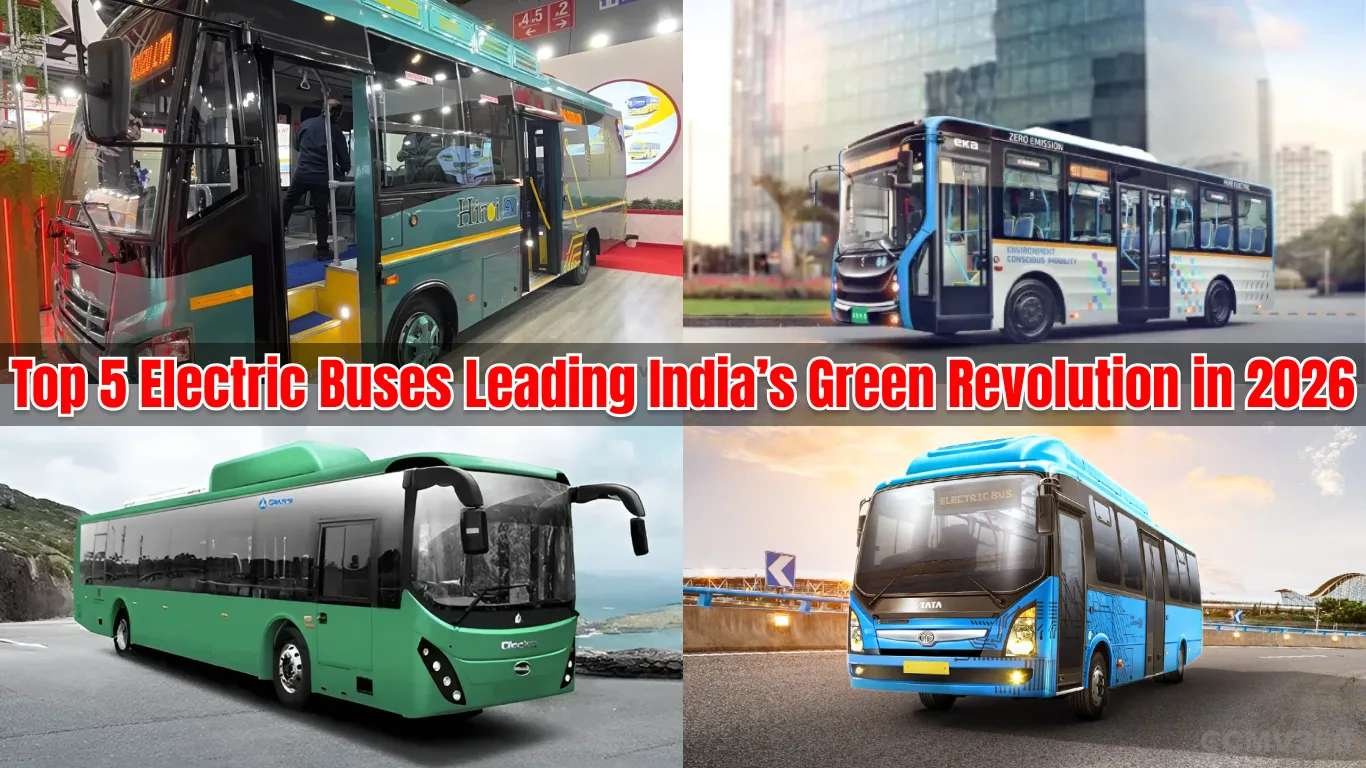
Top 5 Electric Buses Leading India’s Green Revolution in 2026
30-Jan-2026
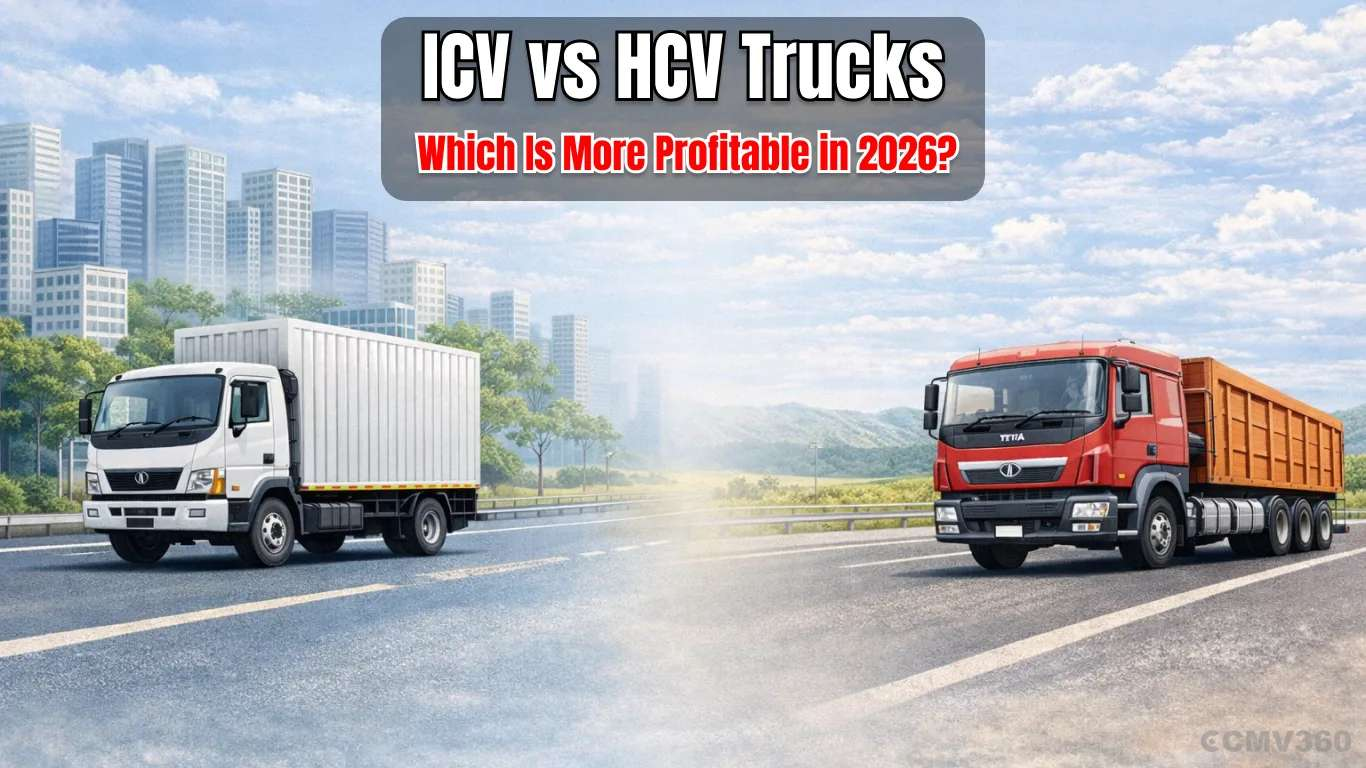
ICV vs HCV Trucks: Which Is More Profitable in 2026?
27-Jan-2026
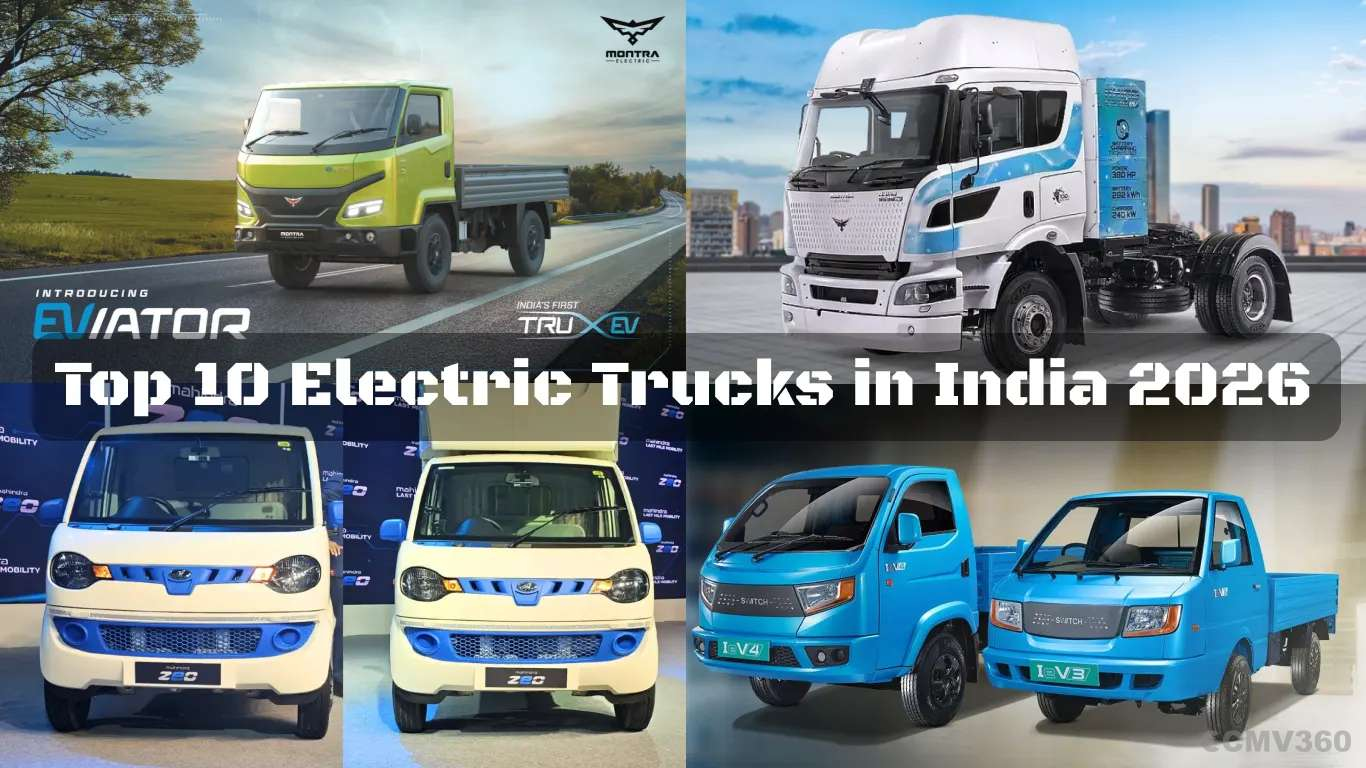
Top 10 Electric Trucks in India 2026: Price, Range, & Payload
22-Jan-2026

Diesel vs CNG vs Electric Trucks in India 2026: Choosing the Right Truck for Your Business Needs
21-Jan-2026
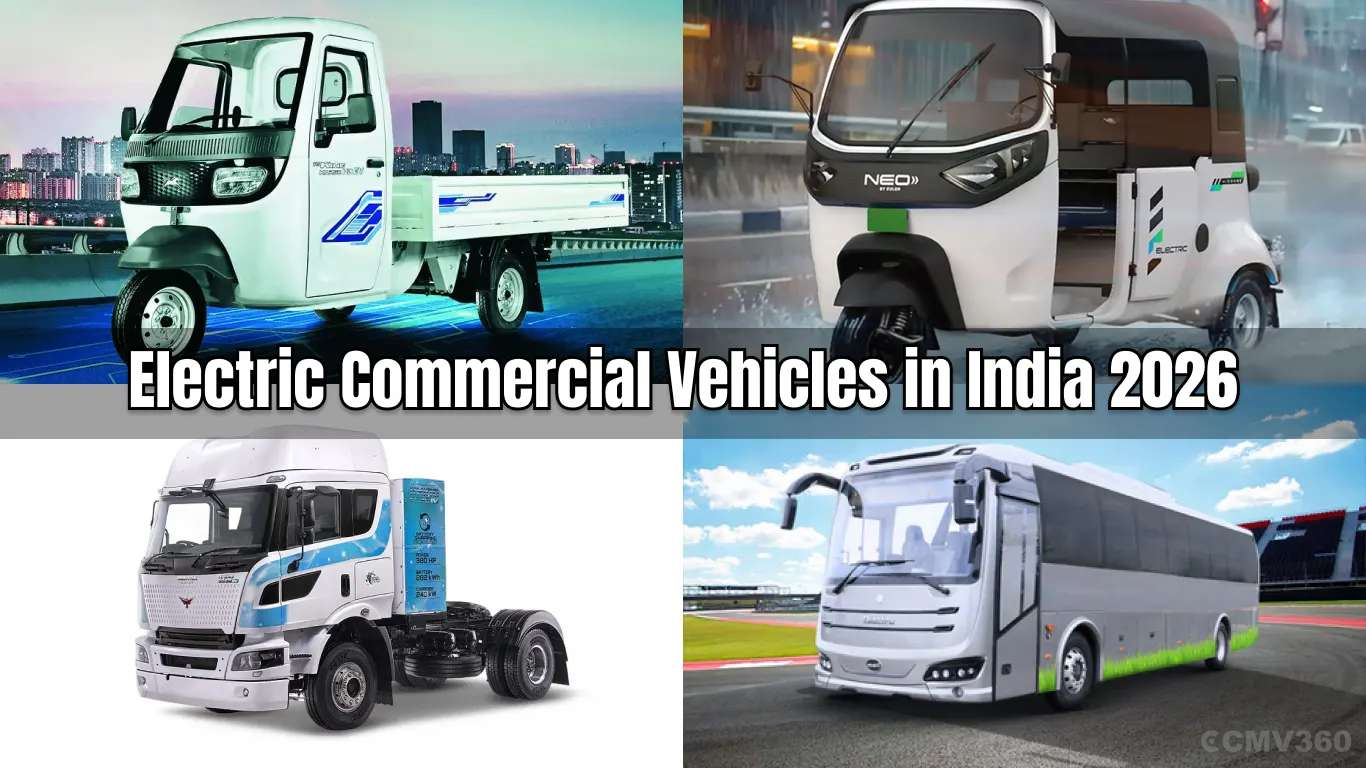
Electric Commercial Vehicles in India 2026: Complete Guide to Electric Trucks, Buses, and Three Wheelers with Prices
19-Jan-2026
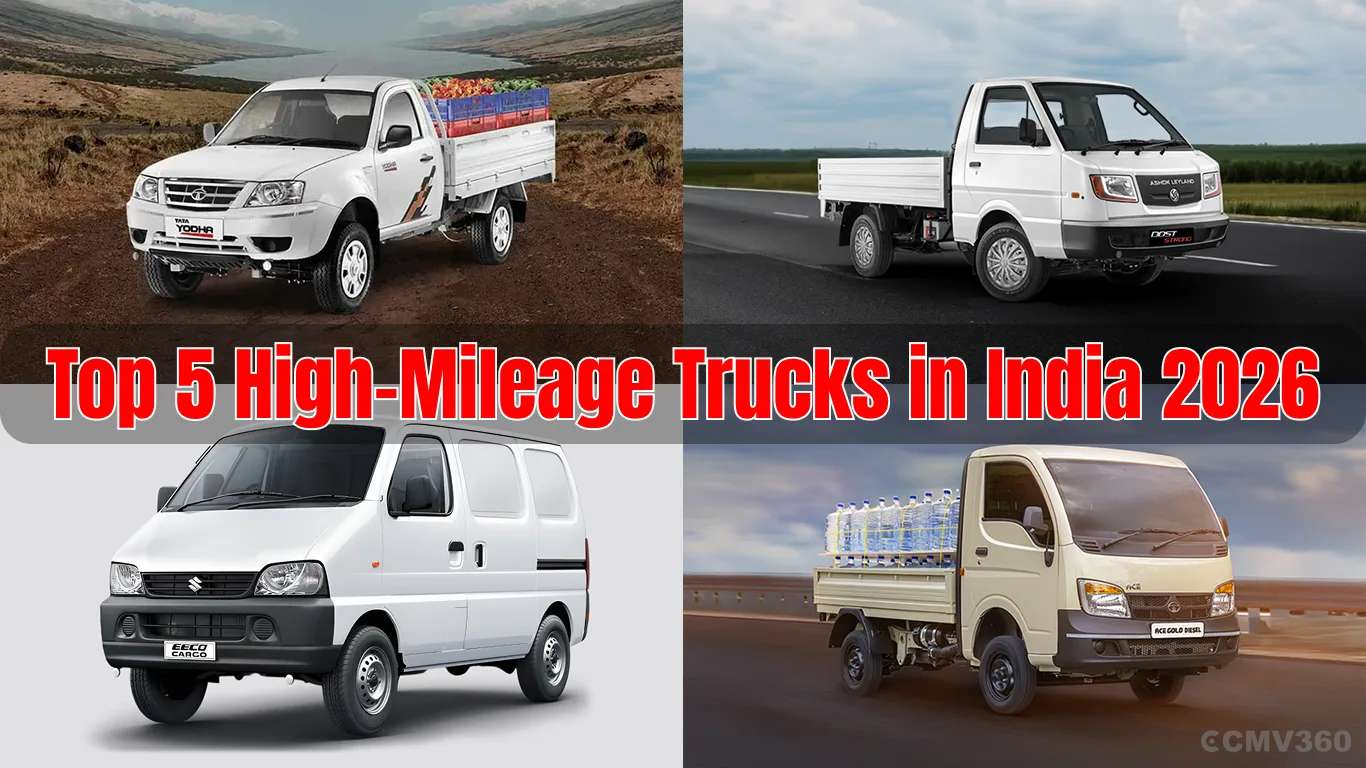
Top 5 High-Mileage Trucks in India 2026
16-Jan-2026
View All articles





